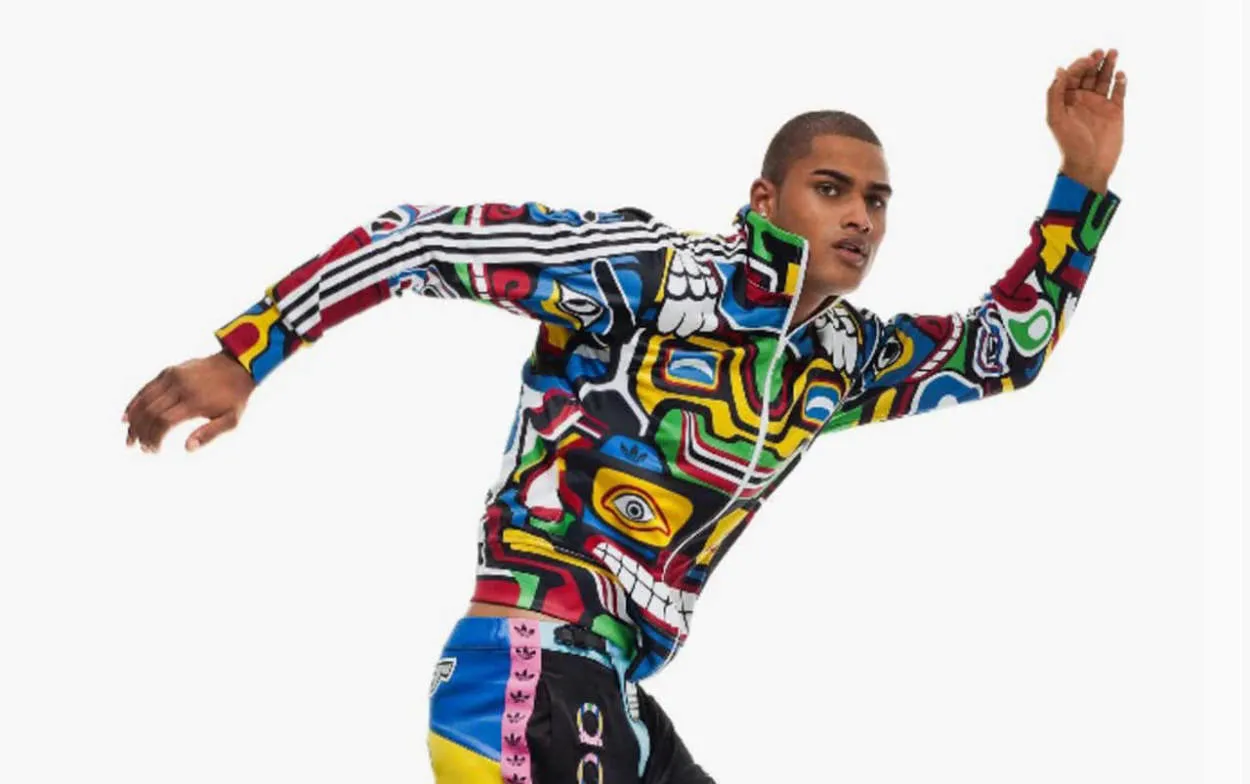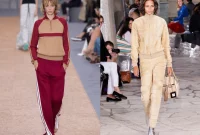The cultural impact of tracksuits in sports and fashion has been significant. From their origins in the athletic world to becoming a fashion staple, tracksuits have transcended boundaries and influenced the way we dress and perceive athletic apparel.
The Global Spread of Tracksuit Culture
The tracksuit, once primarily associated with sports and leisurewear, has now become a ubiquitous fashion statement across the globe. It has successfully transcended its functional roots and has found its place in mainstream culture, making an impact in both sports and fashion industries.
In sports, tracksuits have become synonymous with athletic teams and are often worn by athletes during warm-ups and training sessions. The comfortable and flexible design allows for ease of movement, making it ideal for physical activities. Additionally, tracksuits are often emblazoned with team logos or sponsor branding, further enhancing their role as a symbol of team pride and identity.
However, tracksuits have also made a significant impact in the fashion world. They have evolved from their humble beginnings as athletic wear to being embraced by high-end fashion designers and celebrities. Tracksuits have been reimagined with luxurious fabrics, stylish cuts, and trendy designs, elevating their status and making them a fashionable choice for casual or streetwear ensembles.
The global popularity of tracksuits can be attributed to several factors. One of them is undoubtedly the rise of athleisure, which is the blending of sportswear with everyday fashion. With people adopting a more casual and comfortable style, tracksuits have become a go-to option for those seeking a balance of functionality and style.
Furthermore, the influence of hip-hop and street culture has played a significant role in the dissemination of tracksuit culture. Many artists and influencers have embraced tracksuits as an essential part of their identity and fashion expression, thereby popularizing the trend among their fan base and beyond.
In conclusion, the global spread of tracksuit culture has transformed these once-sporting garments into a fashion staple in both sports and everyday wear. The tracksuit’s versatility, comfort, and evolving designs have allowed it to transcend cultural boundaries and become a symbol of style and individuality.
Tracksuits in Movies and Music
Tracksuits have become iconic in both sports and fashion industries, making their way into popular culture through movies and music. These stylish and comfortable outfits have left a lasting impact, representing a unique blend of athleticism and urban fashion.
In movies, tracksuits have often been featured to portray certain characters or settings. For example, in the iconic film “Rocky,” Sylvester Stallone’s character is frequently seen wearing tracksuits, symbolizing his determination and relentless pursuit of his goals. Similarly, tracksuits are frequently showcased in action and crime movies, representing toughness and a street-smart aesthetic.
The influence of tracksuits extends beyond the silver screen. In music, artists and performers have incorporated tracksuits into their wardrobe, using them as a visual representation of their personal style and identity. Hip-hop artists, in particular, have been associated with tracksuits, as they embrace the hip-hop culture that often celebrates urban fashion and streetwear.
Tracksuits have also evolved in the fashion industry, transitioning from solely athletic wear to a popular fashion statement. Designers have reimagined tracksuits, incorporating unique patterns, materials, and cuts, making them suitable for both sports and casual wear. The versatility of tracksuits has led many individuals to embrace them as a staple in their everyday wardrobe.
Moreover, tracksuits have influenced trends in streetwear and athleisure. Celebrities and influencers can be seen donning tracksuits during their everyday activities, elevating their comfort while remaining fashionable. This trend has permeated social media platforms, where users share their own tracksuit looks, further solidifying its cultural impact.
Overall, tracksuits have made a significant impact on popular culture, thanks to their presence in movies and music. From representing determination and toughness on the big screen to becoming a fashion statement embraced by artists and influencers, tracksuits have become an iconic symbol of a blend between sports and style.
The Social Significance of Tracksuits
Tracksuits have not only made a significant impact in the world of sports and fashion, but they have also become a symbol of cultural significance. With their unique combination of comfort, versatility, and style, tracksuits have transcended their original purpose and have become a statement in various social settings.
In Sports
In the realm of sports, tracksuits have become synonymous with team unity and professionalism. Athletes often wear tracksuits as a means of displaying their affiliation with a particular team or country. Additionally, tracksuits offer practical benefits such as ease of movement and protection from the elements, making them a popular choice among athletes across different sports.
In Fashion
Beyond sports, tracksuits have also made a significant impact in the world of fashion. They have become a staple in streetwear and athleisure styles, blending comfort and style effortlessly. Tracksuits are not only worn for their practicality but also as a fashion statement, reflecting the evolving trends and tastes of society. Celebrities and influencers have also played a major role in popularizing tracksuits as a fashion item.
Social Expression
The popularity of tracksuits extends beyond sports and fashion, as they have become a means of self-expression and identity. Tracksuits have been embraced by various subcultures, such as hip-hop and street culture, as a symbol of belonging and solidarity. They allow individuals to showcase their personal style and affiliations with different groups.
Breaking Barriers
One of the most significant social impacts of tracksuits is their ability to break down societal barriers. Traditionally associated with casual wear, tracksuits have challenged the notions of formal attire, promoting inclusivity and blurring the lines between high fashion and everyday clothing. Their popularity has allowed people from different backgrounds to feel comfortable and confident in their own skin.
In Conclusion
Tracksuits have become more than just a clothing item. They symbolize unity, fashion, and individual expression. Whether on the sports field or in the streets, tracksuits have left a lasting imprint on our culture, transcending boundaries and redefining societal norms.
The Revival of Retro Tracksuit Designs
In recent years, there has been a noticeable resurgence of retro tracksuits in both the sports and fashion industries. These iconic designs from the past have made a strong comeback, captivating the attention of athletes, celebrities, and fashion enthusiasts alike.
Tracksuits, originally popularized in the 1970s, were primarily worn by athletes for training purposes. However, their appeal quickly extended beyond the sports field, becoming a staple in streetwear fashion. The bold colors, relaxed fit, and iconic three-stripe design of retro tracksuits have become synonymous with a sense of nostalgia and timeless style.
Both established sports brands and fashion labels have embraced this trend, releasing their own modernized versions of classic tracksuit designs. These revamped styles incorporate contemporary elements while staying true to the essence of the original tracksuits.
The revival of retro tracksuit designs has not only influenced the sports and fashion industries but also had a cultural impact. By blending sportswear with everyday fashion, tracksuits have created a new sense of versatility and comfort in modern style.
Celebrities and influencers have played a significant role in popularizing retro tracksuits. Their endorsements and appearances have made these vintage-inspired outfits a must-have for fashion-conscious individuals. Social media platforms have further amplified their reach, allowing trends to quickly spread and gain widespread popularity.
Moreover, the revival of retro tracksuits has sparked a sense of nostalgia among consumers, reminding them of the carefree and vibrant spirit of past decades. This connection to the past offers a refreshing alternative to the fast-paced and ever-changing fashion landscape.
As the popularity of retro tracksuits continues to soar, it’s clear that these designs have become more than just a fleeting trend. They have become a timeless symbol of both athletic prowess and fashion-forward thinking.
The Political Statements Made with Tracksuits
Tracksuits have transcended their original purpose as sportswear and have become symbols of both political and cultural statements. In recent years, tracksuits have been used as a form of expression, reflecting the values and beliefs of individuals or groups. The influence of tracksuits in sports and fashion has not only been limited to their aesthetic appeal but has also shaped the political landscape in various ways.
One notable example is the tracksuit’s association with political activism. Activists around the world have adopted tracksuits as a means to protest and challenge social and political issues. The tracksuit’s comfortable and utilitarian design allows activists to move freely during demonstrations while making a visible statement. It has become a uniform of resistance, representing solidarity and empowerment.
In addition to activism, tracksuits have also played a role in challenging societal norms and breaking gender stereotypes. The rise of gender-neutral fashion has seen tracksuits being worn by individuals of all genders, blurring traditional lines of masculine and feminine attire. By embracing tracksuits, individuals are challenging rigid societal expectations and promoting inclusivity and equality.
Furthermore, tracksuits have been utilized as a political statement in sports. Athletes have donned tracksuits with symbols or slogans representing political causes. This form of expression has the power to reach a wide audience, sparking conversations and raising awareness about important issues. Tracksuits worn by athletes have become platforms for social commentary, fostering dialogue and pushing for change.
Tracksuits have also been used by political figures to connect with the masses. Many politicians have recognized the popularity and cultural significance of tracksuits and have incorporated them into their campaigns or public appearances. By wearing tracksuits, politicians aim to portray themselves as relatable, down-to-earth, and in touch with the concerns of ordinary people.
In conclusion, tracksuits have evolved beyond their functional purpose and have become powerful tools for expressing political and cultural statements. Whether utilized by activists, athletes, or politicians, tracksuits communicate messages of resistance, inclusivity, and identification with the masses. Their impact on sports and fashion extends far beyond the boundaries of mere clothing, shaping and reflecting the dynamic nature of our society.
Conclusion
The cultural impact of tracksuits in sports and fashion cannot be underestimated. From their origins in athletics to their iconic status in streetwear culture, tracksuits have become a symbol of both comfort and style. With their versatility and trendsetting appeal, it is clear that tracksuits will continue to influence the fashion industry and leave a lasting impression on popular culture.




